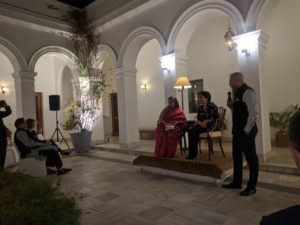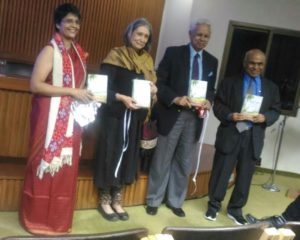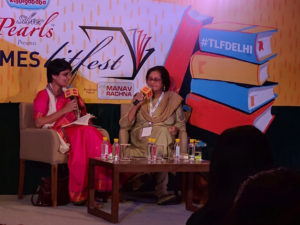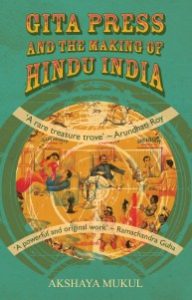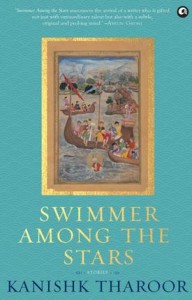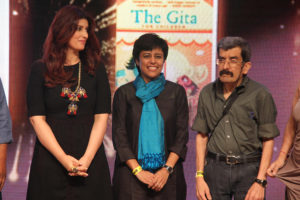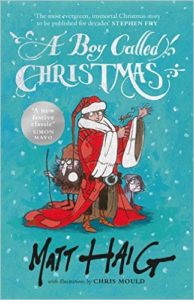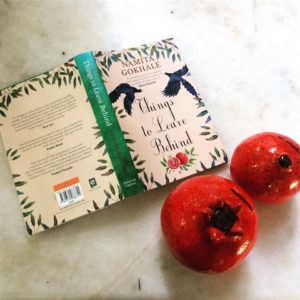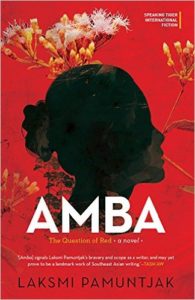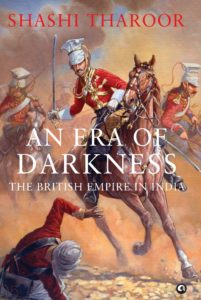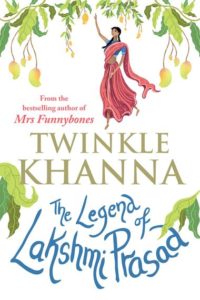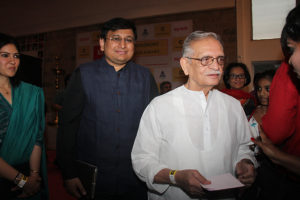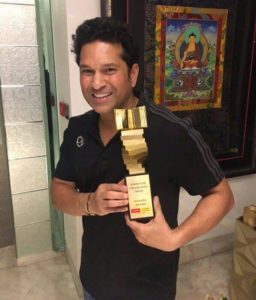A new Zadie Smith, a new set of difficulties in reading, a new pleasure
( My review of Zadie Smith’s new novel, Swing Time, has been published in Scroll today. Here is the original url: http://scroll.in/article/824448/a-new-zadie-smith-a-new-set-of-difficulties-in-reading-a-new-pleasure . I am also c&p the text below.)
The baby was surrounded by love. It’s a question of what love gives you the right to do.
Zadie Smith’s latest novel Swing Time is about two young girls, Tracey and a nameless narrator, who live in council housing of 1980s London. These young girls are of mixed parentage who have been born different shades of brown as a result. They are not exactly social misfits but are not entirely accepted by their classmates as is apparent when they get invited to Lily Bingham’s tenth birthday party. The two girls are completely out of their depth as are their mothers who are clueless on how to guide the youngsters.
Was it the kind of thing where you dropped your kid off? Or was she, as the mum, expected to come into the house? The invitation said a trip to the cinema – but who’d pay for this ticket? The guest or the house? Did you have to take a gift? What kind of gift were we getting? …It was as if the party was taking in some bewildering foreign land, rather than a three-minute walk away, in a house on the other side of the park.
Swing Time is narrated in first person bringing to the story an intimacy, a close involvement between the reader and narrator, which would otherwise be missing if it was narrated in third person. This intimate relationship between narrator and reader helps particularly if Swing Time is read as a bildungsroman. The firm childhood friendship of the narrator and Tracey seems to peter away in adulthood. Yet the narrator’s flashbacks focus inevitably on the time she spent growing up in Thatcherite London with Tracey, to a large extent informing her adult life — emphasising the quality of “shared history“, an important aspect of friendships to Zadie Smith. (Friendships are a characteristic trait of her fiction.) Swing Time zips particularly once the billionaire singer, Aimee, hires the narrator as one of her personal assistants. The storytelling pace matches the heady life of the superstar who flits through her own life juggling various roles such as of being a mother, her performances, recording music, and charitable “good work” in Africa by sponsoring schools.
Amongst the early book reviews of the novel there is a common refrain that the story fails to match the potential of a writer like Zadie Smith, deteriorating into contrived, formulaic and predictable storytelling. Trying to read Swing Time in the traditional manner is an excruciating task. The sentences are structured in such an unpredictable manner – sometimes running on in a Jamesian style for pages on end in an uninterrupted paragraph. The swift shifts in tone from meditative introspection to commentary and sharp judgement by the narrator can be disconcerting. But if you shift the classical expectations of what the book should deliver to that of a novel written by an artist AND a mother — it suddenly transforms. It is more about an artist being a successful professional while managing her time as a mother too. Here is the narrator talking about her mother who puts herself through college while her daughter is still in school, later the mother becomes a prominent politician.
Oh, it’s very nice and rational and respectable to say that a woman has every right to life, to her ambitions, to her needs, and so on – it’s what I’ve always demanded myself –but as a child, no, the truth is it’s a war of attrition, rationality doesn’t come into it, not one bit, all you want from your mother is that she once and for all admit that she is your mother and only your mother, and that her battle with the rest of life is over. She has to lay down her arms and come to you. And if she doesn’t do it, then it’s really a war, and it was a war between my mother and me. Only as an adult did I come to truly admire her – especially in the last, painful years of her life – for all that she had done to claw some space in this world for herself. When I was young her refusal to submit to me confused and wounded me, especially as I felt none of the usual reasons of refusal applied. I was her only child and she had no job – not back then – and she hardly spoke to the rest of the family. As far as I was concerned, she had nothing but time. Yet still I couldn’t get her complete submission! My earliest sense of her was of a woman plotting an escape, from me, from the very role of motherhood.
There are portraits, references and pithy observations on mothering or the relationship between mothers and children. There are the mothers of the two girls – Tracey and narrator, the grandmothers in the family compound of African schoolteacher Hawa, the mothers of the African school children, Aimee and her children and Tracey and her brood. In some senses this novel too with its overdone cultural references especially of the recent past also becomes a record of events for Zadie Smith’s children’s generation.
In June 2013 Zadie Smith along with Jane Smiley objected to the suggestion made by journalist and author Lauren Sandler that they should restrict the size of their families if they want to avoid limiting their careers. Writing in the Guardian, Zadie Smith said, “”I have two children. Dickens had 10 – I think Tolstoy did, too. Did anyone for one moment worry that those men were becoming too fatherish to be writeresque? Does the fact that Heidi Julavits, Nikita Lalwani, Nicole Krauss, Jhumpa Lahiri, Vendela Vida, Curtis Sittenfeld, Marilynne Robinson, Toni Morrison and so on and so forth (I could really go on all day with that list) have multiple children make them lesser writers?” said Smith. “Are four children a problem for the writer Michael Chabon – or just for his wife, the writer Ayelet Waldman?” Smith added that the real threat “to all women’s freedom is the issue of time, which is the same problem whether you are a writer, factory worker or nurse”. A sentiment echoed in Swing Time when she writes: “The fundamental skill of all mothers [is] the management of time”.
In the end the narrator learns to appreciate Tracey’s balancing act as a professional and a mother — like a dance.
She was right above me, on her balcony, in a dressing gown and slippers, her hands in the air, turning, turning, her children around her, everybody dancing.
Swing Time is a mesmerising if at times a challenging read. It is the portrait of an artist AND a mother.
Zadie Smith Swing Time Hamish Hamilton, an imprint of Penguin Books, Penguin Random House, London, 2016. Pb. Pp.454 Rs. 599

